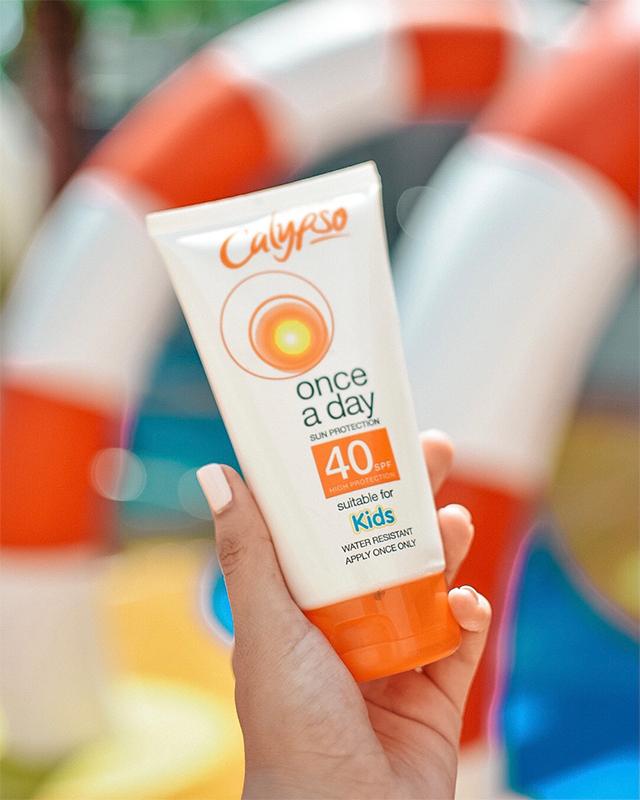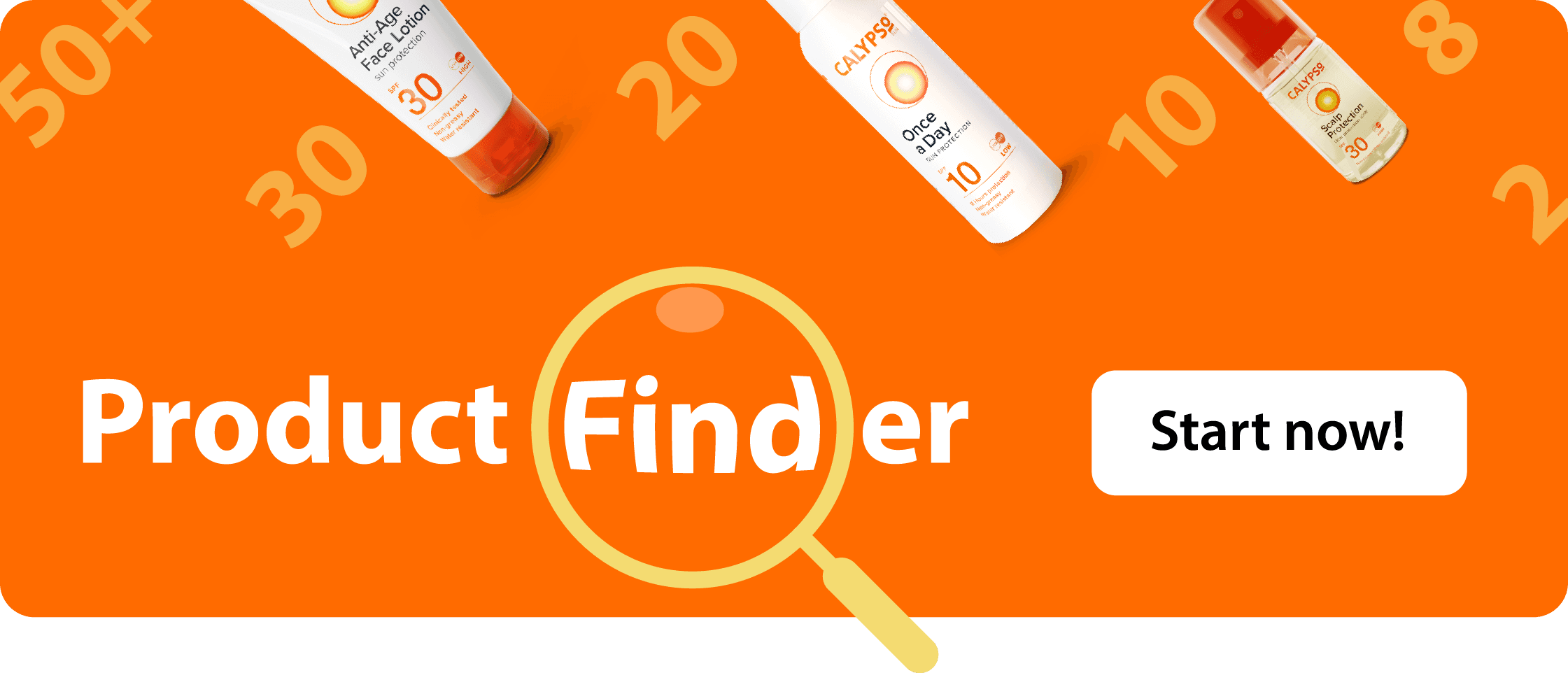Your cart

Sign up to get 10% off your first order
- Exclusive offers
- New product launches
- Sun advice
By entering your email, you are opting in to receiving emails from Calypso. You can opt out anytime.Privacy policy


Be Sun Ready
With CalypsoChoose the right SPF
SPF stands for Sun Protection Factor. It is the measure of the sunscreen’s ability to filter UVB rays. You should consider your skin type, hair colour and location when choosing an SPF product. If you’re not sure what SPF to choose, consult the Climate Destinations Chart:
SPF
Moderate
UK, N, EuropeHot
Mediterranean, USAVery Hot
Tropics, Caribbean, DubaiChildren & Sensitive Skin
Children & Sensitive Skin
Children & Sensitive Skin
SPF
30
SPF
40 - 50+
SPF
50+
Fair Skin
Fair Skin
Fair Skin
SPF
15
SPF
30 - 40
SPF
30 - 50+
Medium Skin
Medium Skin
Medium Skin
SPF
15
SPF
20 - 30
SPF
30 - 40
High tolerance to the Sun
High tolerance to the Sun
High tolerance to the Sun
SPF
6 - 10
SPF
10 - 15
SPF
20 - 30

Very pale, white skin, freckles, red hair
You burn easily in the sun
You have highly sensitive and delicate skin
You never tan
SPF 50+

Fair, white skin, blonde or auburn hair
You burn easily in the sun
You have very sensitive skin
You are able to tan
SPF 30 - 50+

Medium skin tone, brunette hair
You can burn in strong sunlight
Your skin has a low-level of sensitivity
You tan well in the sun
SPF 20 - 30

Dark Skin, Dark hair
You rarely burn
Your skin is sun-tolerant
You tan easily in the sun,
SPF 15 - 20
Be Sun Ready

1
Apply sunscreen before going out
You should always apply sunscreen to clean, dry skin at least 20-30 minutes before sun exposure. Remember to stay out of direct sunlight between 11am to 3pm when the sun’s UV rays are strongest. Make sure you particularly apply sunscreen on the easily forgotten areas such as the back of your neck, your ears and the top of your feet.

2
Cover Up
Sunscreen is very important but sometimes we require additional protection from the sun’s powerful rays. You should always wear a pair of high-quality sunglasses that block 100 per cent of UV rays. It is also important to wear loose clothing and a wide brimmed hat.
Hat
Wear a wide-brimmed hat such as a bucket hat to protect your face, neck, and ears. These areas of the body are exposed to the sun more than any other part so it’s important to protect them whenever possible.
T-shirt
Protect your shoulders, chest and back by wearing loose clothing while out in the sun; these areas are often prone to sun overexposure so try to limit the amount of sun they receive.
Sunglasses
UV rays can damage your skin but they can also damage your eyes and affect your vision if you don’t take the proper precautions to stay safe in the sun.

3
Shade & Water
Seek shade whenever possible - this will help to cool you down and also protect your skin on a hot day. This can also help to prevent other symptoms of overexposure to the sun such as nausea, lightheadedness and dehydration. When your body is hot you begin to sweat, which evaporates allowing your body to cool off efficiently so that you don’t overheat. That’s why it is vital to drink lots of water to prevent dehydration or heat stroke.
Get the best advice
Stay safe with
